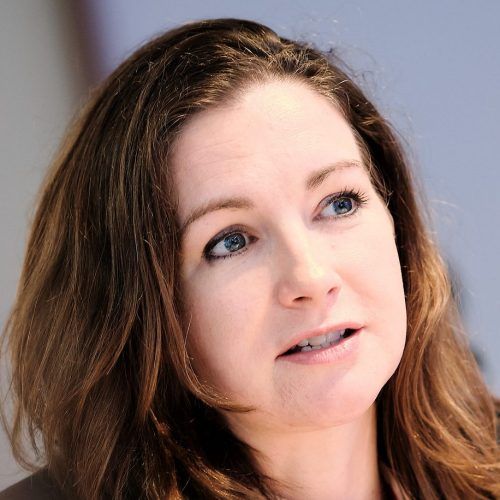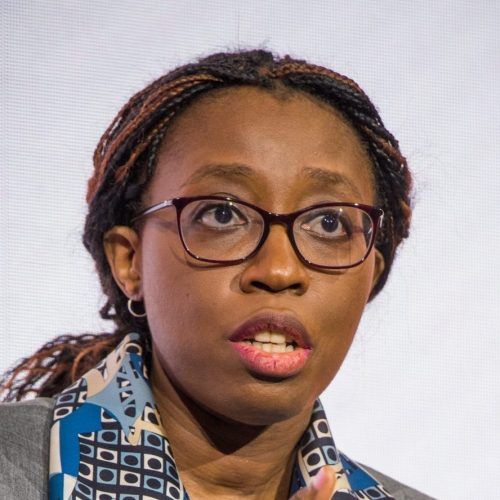From ambition to action: building Europe’s Defence Union
Past event In person

- Area of Expertise
- Peace, Security & Defence
Peace, Security & Defence

Trustee of Friends of Europe

Deputy Speaker and Member of the Latvian Parliament, former parliamentary state secretary of the Latvian Ministry of Foreign Affairs, and Trustee of Friends of Europe & 2017 European Young Leader (EYL40)

United Nations Under-Secretary-General and Executive Secretary of the Economic Commission for Africa and Member of the Africa-Europe Foundation Women Leaders Network (WLN)
Introduction by
Dharmendra Kanani
Chief Operating Officer and Chief Spokesperson of Friends of Europe
Positive symbolism has a place in promoting the importance of equality – International Women’s Day is an important facet, however, reality bites. The lag factor in women’s inequality of opportunity is disproportionately high and not reflective of half of the world’s population nor the progressive value and economic benefit of closing the gap between men and women in the 21st century. The tragedy of Ukraine is witnessed mainly through visceral images of women and children desperately seeking safety. Today, we decided to pay tribute to and define the importance of women as keepers, builders and enablers of peace. It’s time to make inclusion of women in peacekeeping a default position and not an argument. Three women leaders speak frankly on the subject.
Women are indispensable in sustainable peacebuilding activities globally
Zanda Kalniņa-Lukaševica:
“For almost two weeks already we have been eyewitnesses to an unprovoked large-scale military aggression launched by Russia against Ukraine. The immense human suffering it has inflicted on Ukrainian citizens and on Ukrainian women and girls is unimaginable. The life and safety of all Ukrainians is at risk, forcing many of them to flee their homes and country and become refugees. The women and children are particularly affected. At the same time, the Ukrainian women are selflessly leading the efforts to help those in need, including children, the elderly and the wounded.
“We are currently witnessing the fear and the bravery of women in Ukraine. Russia’s deplorable military attack against Ukraine has highlighted the essential role of women and girls in standing up for their country and for the protection of democracy. Women are indispensable in sustainable peacebuilding activities globally. Women peacebuilders can do extraordinary work to mobilise their communities to keep peace, rebuild their societies and push for human rights at all levels of decision-making. The globally accepted ‘Women, Peace and Security’ agenda is particularly relevant today.
“While usually on International Women’s Day we celebrate the social, economic and political achievements of women, on this 8th of March I invite everyone to think about the fragility and the persistence of women and girls caught in conflicts. Today, I invite us to dedicate our actions, our ability to bring about change and our thoughts to the brave Ukrainian women and to the brave Ukrainian people, who fight for their sovereignty and who stand and give their lives for democracy, rule of law and our European values. The international community must be united in support to Ukraine at this dire time.”
Empowering women is the key to empowering humanity
Vera Songwe:
“Last week amid the escalating Russia-Ukraine crisis, a Ukrainian woman fed a young Russian prisoner of war and let him use her phone to call his mother. This is a reminder of the powerful role that women across the globe – regardless of race, creed or colour – can play as agents of change on the front lines of conflict, mediating peace and nurturing broken lives. For example, 37% of UN volunteer peacekeepers supporting peacekeeping operations in Mali, DRC and the Central African Republic in 2020 were women from all over the world, representing 79 different countries.
“There is a 35% chance that peace agreements will last longer when women are involved. Yet, women disproportionately suffer the loss war brings with it. Often, they are the primary victims of human rights violations and the most despicable forms of gender-based and sexual violence during and after conflict. Tribute is paid to all those unsung heroines across the world who are engines for peace and reconciliation through healing, recovery, rebuilding and reintegration even as they bear the brunt of conflict. Sudanese women are an example, having made their mark in the 2020 Juba peace deal to ensure women participation and gender inclusion.
“However, globally, the percentage of peace agreements with gender provisions was 28.6% in 2020, which remains well below the peak of 37.1% in 2015. Gender parity in political leadership and decision-making is lagging globally, excluding women from critical decisions that shape the response to conflict. Only 26.1% of parliamentarians globally are women. Rwanda is a clear example of the contributions women make to peace and development with 61% women parliamentarians, the highest in Africa. Stable countries in the region like Zambia have had a higher percentage of women in higher courts, an indication of women’s contribution to stability.
“With threats like climate change, COVID-19 pandemic and cyber warfare, empowering women is the key to empowering humanity. Collectively we must build a coalition to enhance the leadership role of women in peacebuilding, post-conflict resolution and rehabilitation. It is time to break the bias.”
A peace process without women can never deliver a comprehensive peace
Mary Fitzgerald:
“I had an early lesson in the vital role women play in peacebuilding. I was a teenager when the Northern Ireland Women’s Coalition (NIWC) was founded. A cross-community movement and political party, the NIWC became a crucial player in the peace process that brought an end to three decades of conflict. Two women from the NIWC were among the 20 negotiators responsible for drawing up the 1998 Good Friday Agreement. It was thanks to the NIWC’s efforts that that peace deal specifically referenced victims’ rights, provided for the reintegration of political prisoners, and included a focus on education and housing. As a reporter in post-Good Friday Agreement Belfast, I saw how these provisions were key to promoting social cohesion after the conflict, and ultimately helped sustain the hard-won peace.
“Reporting on other conflicts and post-conflict societies since, including Syria, Afghanistan, Congo, the Balkans and Libya, I have seen how peace processes can be shaped by the presence – or absence – of women. According to the Council on Foreign Relations, between 1992 and 2019, women constituted, on average, 13% of negotiators, 6% of mediators and 6% of signatories in major peace processes around the world. Despite the fact that women’s participation in both conflict prevention and resolution can improve outcomes at different stages of a conflict, women are still missing from most peace processes.
“Libya is a more recent example of how women can help drive more inclusive peacebuilding. Initially excluded from negotiations to end a civil conflict which began in 2014, Libyan women later comprised 17 (or 23%) of the 75 delegates in the UN-facilitated Libyan Political Dialogue Forum when it began in 2020. It was another woman – Stephanie Williams, then acting head of the UN Support Mission in Libya or UNSMIL – who helped make this happen. The female participants pushed for greater representation for women in a future transitional government. Women went on to hold several ministerial portfolios including foreign affairs and justice in the interim authority known as the Government of National Unity. As in Northern Ireland, the road to lasting peace in Libya is long and women have since suffered setbacks in terms of representation and participation but an important precedent has been set. A peace process without women can never deliver a comprehensive peace.”
You may also like…
Past event In person

Next event In person & Livestreamed

Past event Online

Past event Online





Stay informed
We use cookies and similar technologies to adjust your preferences, analyze traffic and measure the effectiveness of our campaigns. Learn more about our privacy policy.